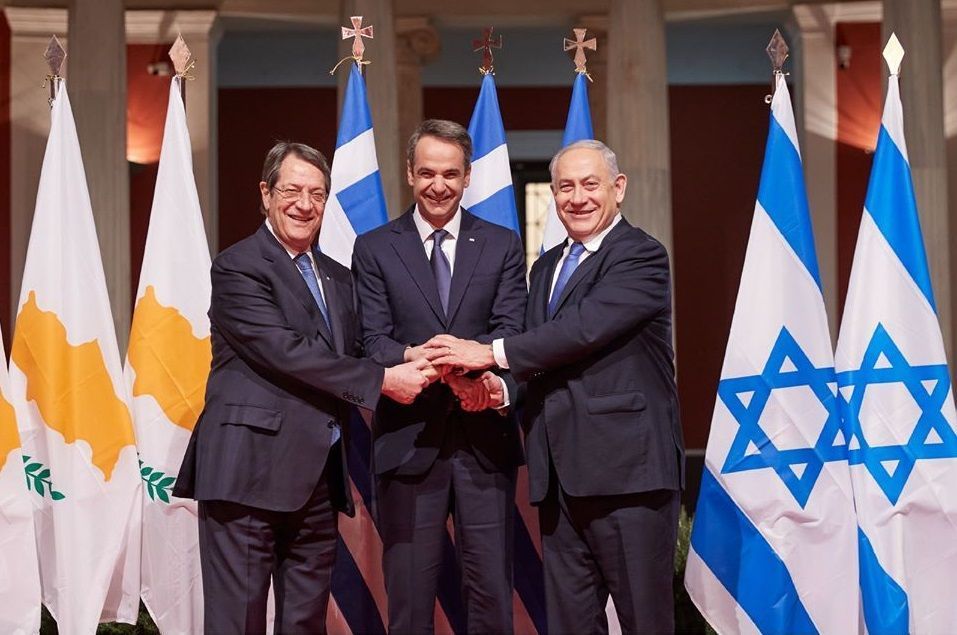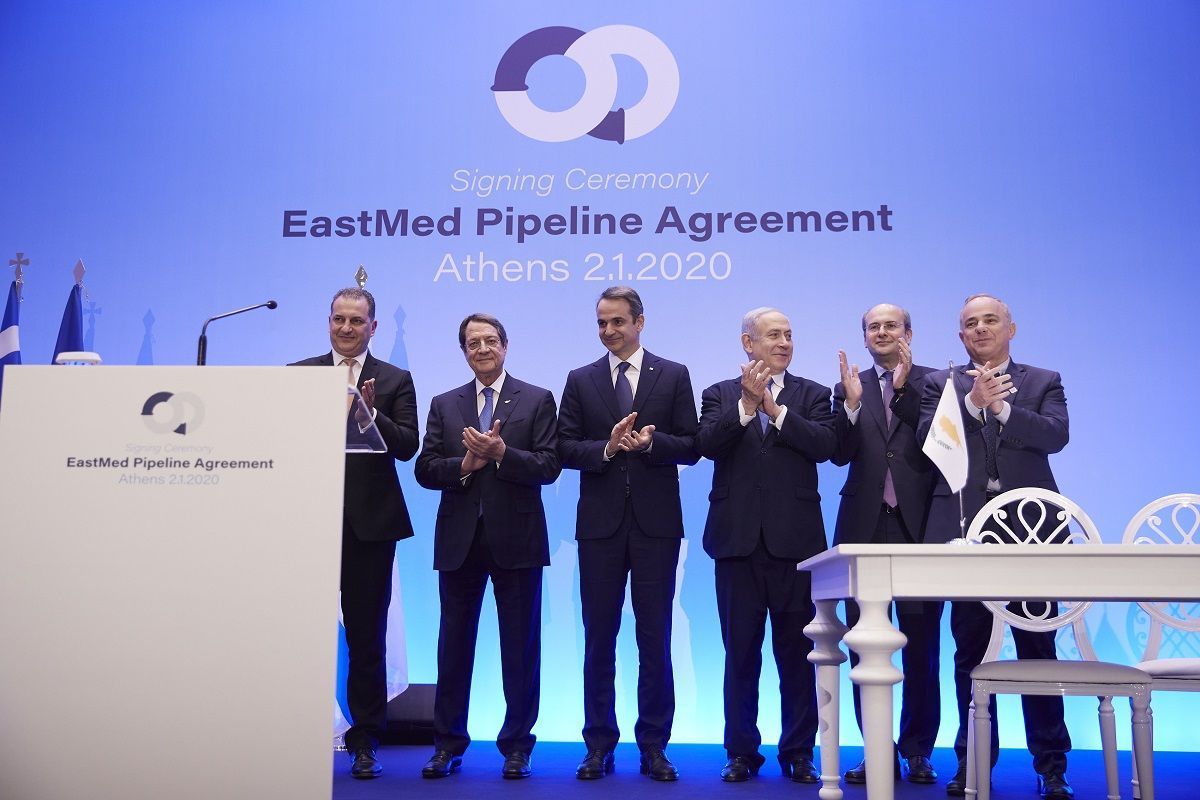Greece, Cyprus and Israel Ink EastMed Gas Pipeline Deal in Athens

Greece is looking to strengthen its geopolitical role and fortify its economy after signing together with Cyprus and Israel in Athens, on Thursday, a deal to construct a 1,900km subsea pipeline that will transport natural gas from new offshore deposits in the eastern Mediterranean to Europe.
Joining Greek Prime Minister Kyriakos Mitsotakis in Athens, for the signing ceremony were Israeli Prime Minister Benjamin Netanyahu and Cypriot President Nicos Anastasiades.
Budgeted at around 6 billion euros, the project is slated to be completed by 2025 with a final investment decision to be announced by 2022.
The EastMed pipeline is set to supply Europe with an alternative gas source with a target of meeting approximately 10 percent of the EU’s energy needs, currently being met by supplies from Russia and the Caucasus region.

The pipeline will run from offshore gas reserves in Israel and Cyprus, to Crete and the Greek mainland, and from there, via Italy into Europe’s gas network. Italy is expected to sign the agreement in the coming period.
“The EastMed agreement has an economic, developmental, diplomatic, and geostrategic dimension,” said Mitsotakis, adding that it demonstrates the commitment of all parties involved to employ energy as “a link for cooperation between nations and not as a cause for conflict”.
“The pipeline is a guarantee of security in the wider area… and at the same time, offers more flexibility and independence to Europe’s energy sources,” Mitsotakis said.
The project has particular importance for Greece as it will supply gas to areas that do not have access to the national grid, including Crete, the Peloponnese, and Western Greece.
Considered a move of geostrategic and geopolitical importance, the transnational pipeline deal is backed by the EU and US and aims to foster cooperation among southeastern Mediterranean countries. In this direction, Cairo will be hosting the EastMed Gas Forum on January 15-16.
Despite its importance, the project has faced a number of issues, primary of which is Turkey’s opposition and claims.
IGI Poseidon, a joint venture between Greek gas firm DEPA and Italian energy group Edison, has undertaken the pipeline project.




